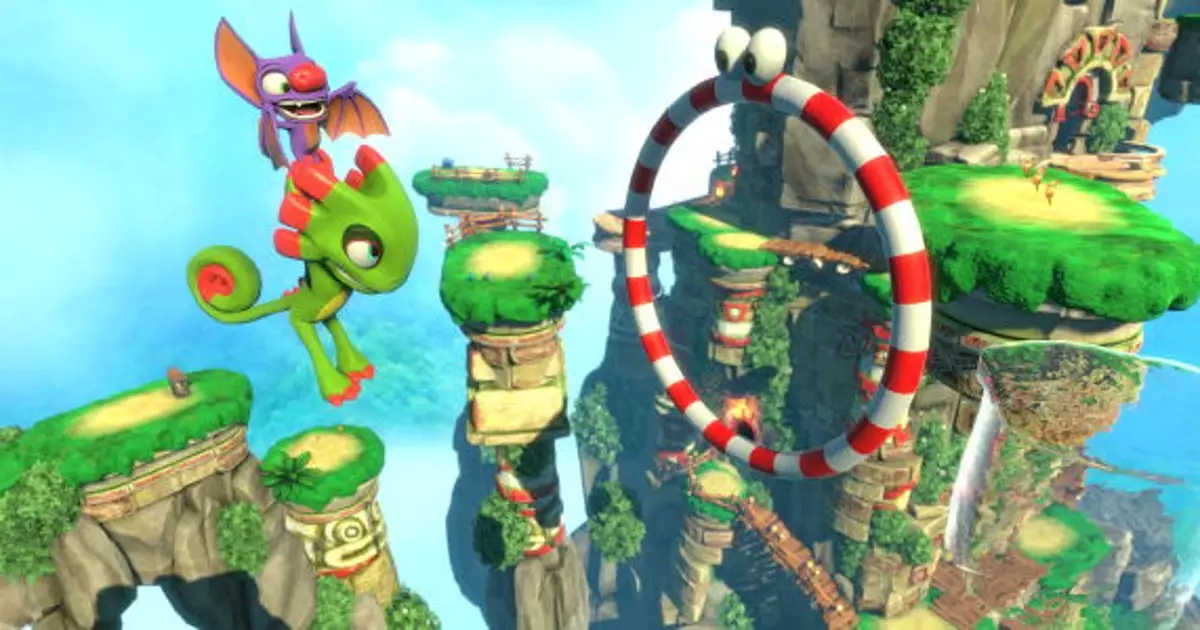In a move that has sent ripples through the gaming community, Playtonic Games—best known for their nostalgic mascot platformer, Yooka-Laylee—is laying off several staff members as they struggle to navigate what they label as a “profound change” in the gaming industry. The announcements have raised eyebrows and sparked discussions not only about Playtonic’s current direction but also about the broader implications for indie developers in a market increasingly dominated by massive budgets and blockbuster franchises. While the exact nature of these “profound changes” remains vague, the effects are stark: talented artists and designers now find themselves thrust back into the job market amidst an uncertain economic climate.
Understanding the Changes in the Gaming Sector
Industry veterans and newcomers alike are feeling the heat of rising development costs, alongside a steadily increasing demand for games that promise longevity, perhaps at the expense of the traditional gaming experience. As Playtonic employees pack their bags, questions abound regarding whether this is simply a consequence of shifting market demands or a deeper issue tied to the evolving expectations of players. The industry’s embrace of service-focused models, where games are designed as platforms for continuous engagement rather than standalone experiences, has left many creative studios scrambling to keep pace.
In a poignant statement shared on social media, Playtonic emphasized that the layoffs do not reflect a deficiency in creativity or commitment among their personnel. Instead, they underscored the painful realities that smaller teams face in a landscape that increasingly favors expansive studios backed by vast resources. This contradiction—where talent and dedication do not guarantee job security—paints a grim picture of the industry’s future for independent developers struggling to carve out their niches amidst changing tides.
The Impact of Economic Fluctuations
The past few years showcased an unprecedented boom in the gaming industry, driven in part by the global pandemic that had millions turning to gaming as a source of entertainment during lockdowns. However, this surge was short-lived, leading to a severe disconnect when the world began to reopen. The sudden shifting of habits left many studios without sufficient grounding for sustainable growth, and the fallout is visible in the form of layoffs, restructurings, and severe financial reckoning.
The disparity between small indie studios like Playtonic and larger consortia not only affects employment but also stifles creativity and innovation in the industry. As funds become scarce, the pressure to deliver commercially viable experiences overshadow the artistic aspirations that originally fueled many creators. The danger here is not just the loss of particular jobs but the ongoing erosion of a diverse gaming landscape, rich with the vibrant ideas and creative risks typically championed by smaller studios.
A Call for Transparency in the Industry
The communications from Playtonic and other studios navigating these changes often skirt around the real issues at play. While poignant messages about care and creativity are admirable, what the industry sorely needs is transparency and a candid discussion about how these economic challenges are reshaping game development. Players, developers, and the industry as a whole deserve clarity about why beloved studios face such extreme measures, rather than vague platitudes couched in corporate jargon.
By addressing the underlying problems directly, the industry can begin to foster an environment that encourages growth rather than fear, allowing smaller developers to find a foothold even as larger entities inevitably dominate headlines. Playtonic’s insistence on the importance of their departing staff should serve as a rallying cry for other studios to reevaluate their priorities and strategies, placing a premium on the artistic vision that originally drew devs into this vibrant world.
What Lies Ahead for Playtonic and Similar Studios?
As Playtonic navigates these treacherous waters, the decisions made today will resonate far into the future of both their studio and the wider gaming industry. It is imperative for them to adapt and evolve creatively, but at the same time, they must not lose sight of the warmth and intimacy that define independent game development. In an era characterized by stark contrasts between big-budget titles and indie projects, the call for balance and understanding has never been more urgent. Playtonic’s legacy hinges upon its ability to recapture the spirit that sparked its creation while engaging authentically with the industry’s ongoing metamorphosis.


Leave a Reply